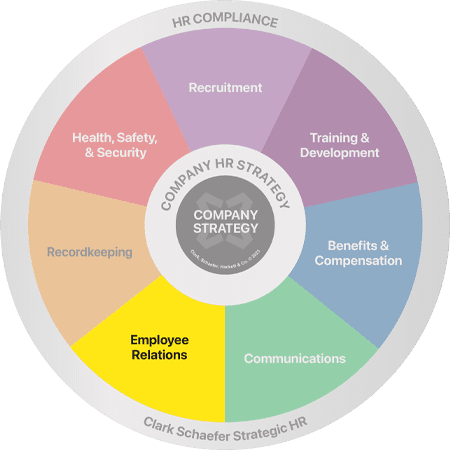Where Do They Fit In? Why Don’t My Employees Understand?
Last Updated on November 28, 2017 / Employee Relations
By Cathleen Snyder, SPHR, SHRM-SCP
We’ve been noticing this question coming up more and more, and many employers are asking us what to do about it:
“My employees don’t see how the way they act is a reflection of our company.”
“They don’t get it, that when they call off everyone on the team is impacted.”
“I shouldn’t have to have this conversation. They should just know!”
Guess what? The fact that you are having these issues means you do have to have this conversation.
Often, these issues are blamed on the millennial generation. The fact is, each of us has differing life experiences, based upon our family, where we were raised and any number of circumstances that impact who we are today. Along the way someone may or may not have discussed what is perceived as areas of basic courtesy and appropriate behavior. Perception of what that means can also differ.
More and more employers are finding themselves having to deal with disciplinary issues that arise from gaps in behavioral expectations, not to mention the frustrations to management and colleagues.
It’s time for employers and HR to be proactive in setting expectations for appropriate workplace behavior. This may include everything from timeliness, appropriate email etiquette, basic manners (yes, belching), and any other issues that you have experienced. I’m a firm believer that to rely on the premise of, “They should just know!” only leads to more frustrations all the way around. If no one has ever communicated expectations, how can employees be expected to know them and held accountable?
The key is to communicate what is expected in a way that is diplomatic, yet clear. For example, informing employees that the conference room walls can be thin. A belching contest while there is a conference call taking place next door, may be problematic. Or, that it’s inappropriate to text during a client meeting, or any meeting for that matter. Helping an employee to see that frequent call offs delays the project, and the increased cost involved as a result. We can’t assume that what we feel is obvious is to others.
Many of these expectations can be addressed in the employee handbook, but should also be reinforced throughout the employees’ lifespan. Don’t forget when presenting the information, to help connect the dots of why a particular behavior is so important. You’ve hired the best and brightest for your team. Once you’ve set these expectations and help them understand the reasoning, you can move on to focusing on what your business does best.
Cathleen Snyder, SPHR, SHRM-SCP is a Senior Human Resources Management Consultant and Director of Client Relations at Strategic HR (www.strategicHRinc.com). If you have any questions or would like to share your comments with Cathleen, contact her at Cathleen@strategicHRinc.com.




